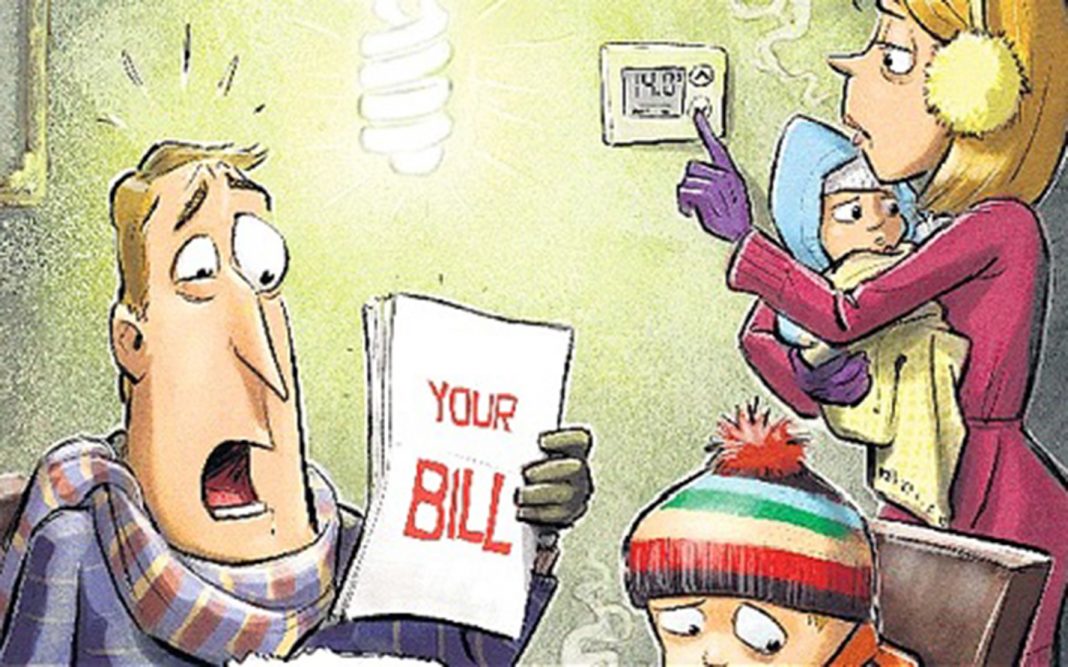We paid our electricity bill this week, or rather it was debited from our bank account without any warning. It has always irritated me that the electricity companies in Spain and the Canary Islands feel that they can take whatever they wish from our bank account without letting us know in advance; it is the same with the water company too.
In the Canary Islands, electricity and water bills usually arrive two or three weeks after the payment has been taken from bank accounts, which makes careful budgeting, particularly for those on a low income, very difficult.
I am sure that most people find that monthly electricity bills increase and rarely is there any movement downwards. In our home, over the last few years, we have gradually changed to energy efficient lighting and appliances, but the increase in cost whilst consumption remains steady is often staggering.
It is of course, the poorest in society that are most affected by high electricity bills. Terms such as ‘Fuel Poverty’ or ‘Energy Poverty’ are some of the current meaningless phrases designed to make this serious issue somehow socially more acceptable. For many people, this can mean an impossible choice between keeping warm or eating.
In the Canary Islands, those regarded as ‘vulnerable’, as well as large families can apply for a ‘social bonus’, which is designed to ease the cost of such bills by providing a discount. Unfortunately, as is the case with many such schemes in Spain, the system is unnecessarily complicated and bureaucratic, which many families simply do not understand and such schemes often end up causing more harm than good.
The best way of avoiding energy poverty is to reduce the cost of electricity through the promotion and investment in renewable energy. This will come in time, assuming that the oil companies and politicians allow it, but in the meantime, efforts are being made to encourage municipalities to provide emergency fuel aid for those families that cannot pay their electricity bills and the supply is cut off.
Local politicians are rightly making the point that that residents of the Canary Islands have a right to receive electricity at a price that is equivalent to residents living in Peninsular Spain, even though the costs of producing electricity on the islands are three times as high.
In the Canary Islands, we have an abundance of sunshine, wind and wave power, but the dilatory manner in which these renewable sources are being utilised is staggering. There are examples to the contrary, of course, with the island of El Hierro leading the way with massive investment in renewable sources, which is already making a huge difference to the lives of islanders, as well as a massive reduction in carbon emissions and is often quoted as a positive example by researchers in other countries.
The Canary Islands are located just a short distance from Africa, and it was interesting to hear researchers recently claim that the installation of huge numbers of solar panels and wind turbines in the Sahara Desert would have a major impact on rainfall, vegetation and temperatures. The action of wind turbines and solar panels would double the amount of rain that currently falls on the Sahara, which would have a huge and positive impact upon the region, allowing vegetation to flourish.
In addition, according to the researchers’ calculations, a massive installation of solar panels and wind farms in the desert would generate more than four times the amount of energy that the world currently uses each year. If such plans were ever to come to fruition, it could potentially end the issue of fuel poverty once and for all. However, one can only imagine the blocking mechanisms of the oil industry and investors in the energy market.
If you enjoyed this article, take a look at my websites: http://barriemahoney.com and http://thecanaryislander.com or read my latest book, ‘Living in Spain and the Canary Islands’ (ISBN: 9780995602724). Available in paperback, as well as Kindle editions.
Join me on Facebook: @barrie.mahoney
© Barrie Mahoney





